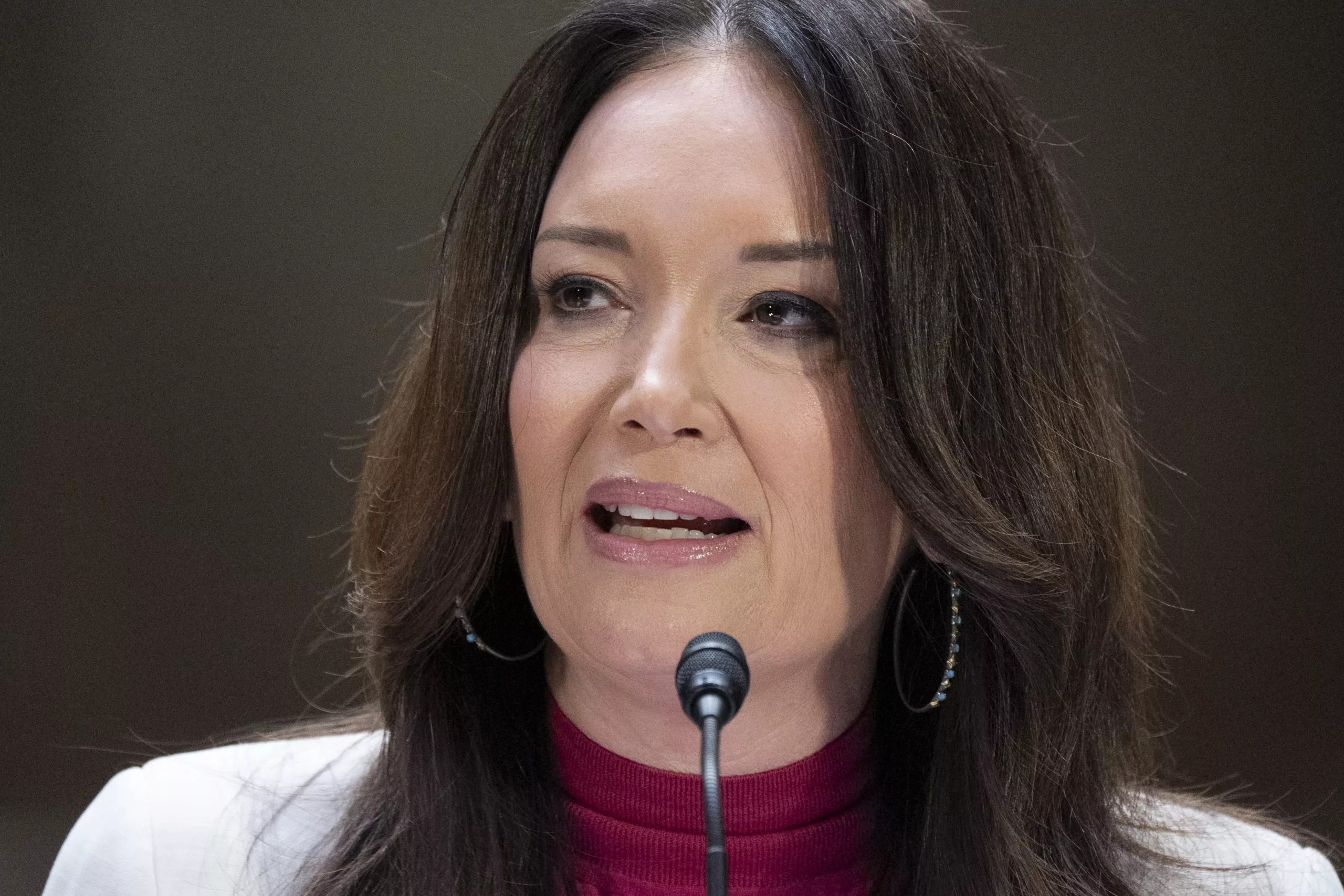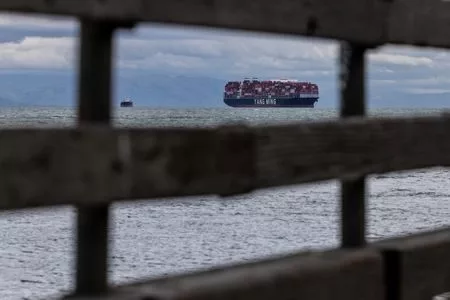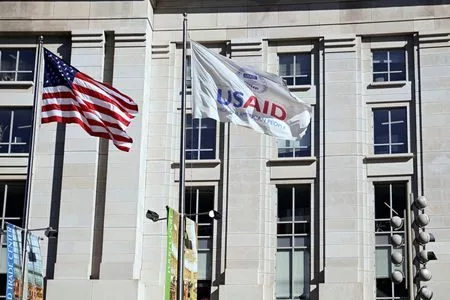WASHINGTON (AP) — Conservative lawyer Brooke Rollins was confirmed Thursday as secretary of agriculture, placing a close ally of President Donald Trump into a key Cabinet position at a time when mass deportation plans could lead to farm labor shortages and tariffs could hit agricultural exports.
Rollins, who served as chief for domestic policy during Trump’s first administration, was confirmed overwhelmingly by the Senate in a 72-28 vote.
Rollins will now lead a department tasked with overseeing nearly all aspects of the nation’s food system, including standards on farming practices and livestock rearing, federal subsidies to farmers or agribusinesses and setting nutrition standards for schools and public health officials nationwide.
The Department of Agriculture was at the center of Trump’s trade war in his last administration, when it increased subsidies to farmers growing the nation’s two biggest crops, corn and soybeans, after retaliatory tariffs were levied by China on the grains and international markets were disrupted. The United States is the world’s largest food exporter.
In her Senate confirmation hearing, Rollins acknowledged that Trump’s plans for the mass deportation of people in the country illegally could led to farm labor shortages. Growers of some vegetables and crops such as apples as well as dairy operations are especially dependent on migrant labor.
But Rollins said Americans support Trump’s plans and she would work to help the president while also trying to protect farmers.
“The president’s vision of a secure border and a mass deportation at a scale that matters is something I support,” Rollins said.
Rollins is a conservative legal activist and public policy analyst who most recently served as president and CEO of the America First Policy Institute, a Trump-aligned think tank that developed policy and cultivated a network of personnel for the second Trump administration.
Other AFPI alumni in the administration include the group’s chair, Linda McMahon, who was tapped to lead the Education Department, Attorney General Pam Bondi, Housing and Urban Development Secretary Scott Turner and Veterans Affairs Secretary Doug Collins, among others.
Rollins served as acting director of the White House Domestic Policy Council during Trump’s first term, where she oversaw a portfolio that included agriculture policy. She also served as president of the Texas Public Policy Foundation, a conservative think tank.
Rollins’ nomination was unanimously approved by the Senate’s agriculture committee. Sen. Jim Justice, R-W.Va., called Rollins a “superstar” while Rollins’ home state senators, Sens. Ted Cruz and John Cornyn, testified on her behalf ahead of her confirmation hearing.
Rollins promised to “modernize” USDA in line with Trump’s vision for the department that included faster procession of disaster aid for farmers and tackling animal diseases. She also vowed to “immediately begin to modernize, realign, rethink the United States Department of Agriculture” on policies like remote work, in line with the Trump administration’s broader stance.
Democrats expressed concern that federal funding freezes had disrupted aid to farmers and land grant universities and pressed Rollins on how her support for farming communities may clash with Trump’s immigration and trade agenda.
Sen. Amy Klobuchar, D-Minn., the ranking member of the agriculture committee, pressed Rollins on how she would respond to retaliatory tariffs on U.S. crops, given Trump’s previous trade wars.
“Beyond just getting extra payments to make up for it, will you be a voice to make sure people understand the importance of exports for rural America? And it’s not just farming but manufacturing and the like,” Klobuchar asked.
Rollins promised that her team “would be at the table fighting for what we believe is necessary for these communities.
“Of all of the portfolio that, if confirmed, I am taking on, the one that excites me the most is the opportunity to put forward a vision and build a program around revivifying, restoring and bringing back rural America,” Rollins said. She cautioned that “clearly, the federal government itself can’t do that” but said that an “all approach” would be needed to help rural communities.
___
McFetridge reported from Des Moines, Iowa.
Brought to you by www.srnnews.com







